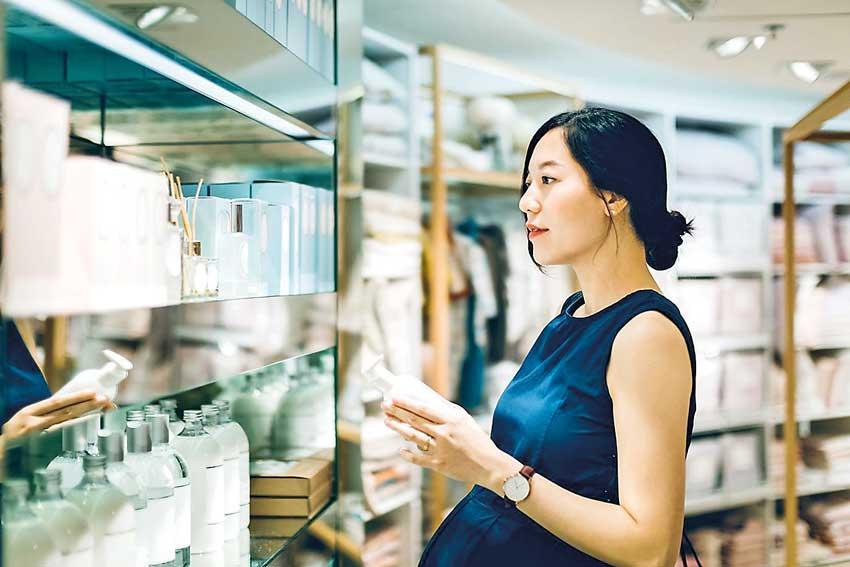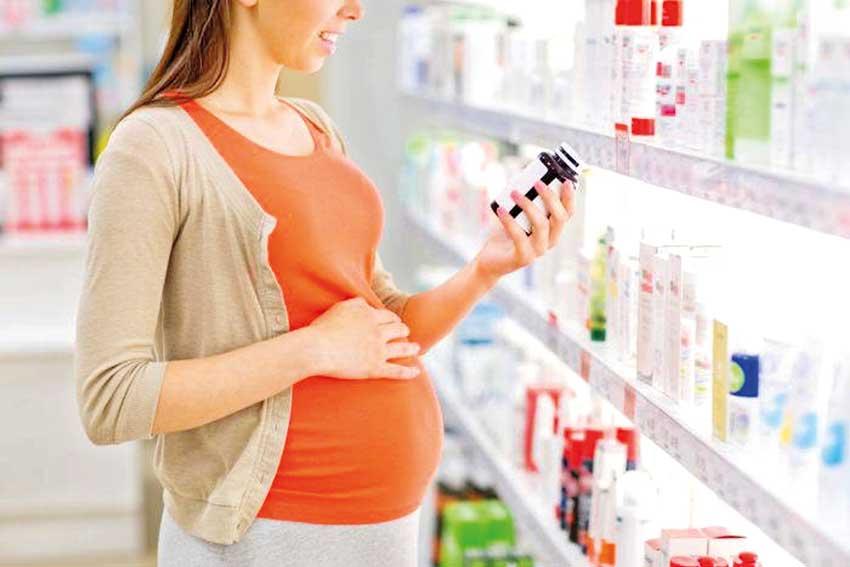30 Aug 2019 - {{hitsCtrl.values.hits}}

 Most of the Pregnancies are magical experiences filled with a host of benefits from pregnancy glow and increased body confidence. But for some women, it can mean months of nausea and fatigue, as well as dermatological conditions ranging from acne to hyperpigmentation, hair loss, under eye discolouration, stretched marks and etc. While many of these issues are easily remedied with everyday over-the-counter solutions, there are some other conditions which need to be addressed with complex chemicals and apparatus for better look.
Most of the Pregnancies are magical experiences filled with a host of benefits from pregnancy glow and increased body confidence. But for some women, it can mean months of nausea and fatigue, as well as dermatological conditions ranging from acne to hyperpigmentation, hair loss, under eye discolouration, stretched marks and etc. While many of these issues are easily remedied with everyday over-the-counter solutions, there are some other conditions which need to be addressed with complex chemicals and apparatus for better look.
Just because you’re expecting doesn’t mean that you have to give up all of your beauty essentials. Your beauty routine will need some adjustments, though, as your skin will become more sensitive during pregnancy.
Sensitive skin during pregnancy is usually the result of hormone fluctuations and increased blood flow to the skin. Because of your increased sensitivity, products that you have been using for years might now cause a rash or reaction and due to skin changes they can be absorbed to one’s body above expected levels.
Sun screens
Due to the changes in the skin your skin is more prone to get sun injuries during pregnancy. To avoid skin irritations during pregnancy, always protect your skin with a high-factor sunscreen (mineral or physical sunscreens are the safest) and switch to products that are natural and organic — traditional beauty products may contain ingredients that are potentially harmful to expectant mothers.
Hair dye
There are a lot of chemicals used in hair dye, but no well-designed studies have found any direct link to defects or childhood disorders. While you don’t want to be exposed constantly, dyeing your hair once or twice is unlikely to create a major problem. To be on the safe side, wait till the second or third trimester, when most of baby’s major organs have finished developing, or opt for highlights over single-process colour. Since highlights aren’t applied directly to the scalp, the chemicals are significantly less likely to enter your bloodstream.
Facial
There’s no way to predict how your skin will change over these nine months, and a facial can be a great way to help adjust to differences in texture and moisture. But your skin may be a lot more sensitive now, so you definitely better to skip harsh peels and microdermabrasion. Make sure your aesthetician knows if you have any major smell aversions. And once you’re past the first trimester, ask to be propped up with pillows so you’re not lying flat on your back as lying back can slow circulation and make you feel dizzy.

Gel Manicure and Pedicure
The compounds in gel formulas are potentially toxic to you and Baby. Gel polishes won’t seep through the nail itself, but could be absorbed through your nail bed. And whether you’re pregnant or not, the ultraviolet lamp used to set the gel could lead to hyperpigmentation and wrinkles. To keep yourself and your baby safe, opt out for a regular manicure and choose your polish carefully. Specially stay away of colours containing dibutyl phthalate, toluene and formaldehyde and to dry your digits, choose a fan with the UV light turned off.
Massage
Massage is a fantastic thing during pregnancy. It helps soothe stress, improve circulation, and ease, but it’s important that the therapist be knowledgeable about pregnancy body changes. If you want to lie on your belly, look for spas that offer special cut-out tables, otherwise you’ll likely be on your side. Your therapist may opt to use unscented oil. Lastly, watch for places where emergency medical help is available.
Teeth whiting
If you’re thinking of brightening your teeth, take a pregnant pause. Because of the lack of available subjects, teeth whitening has never been studied for safety during pregnancy.As it’s an elective treatment, it is logical just to wait until after delivery. In addition, your gums may be more sensitive and prone to bleeding due to hormonal shifts, and for some women, whitening may further irritate these sensitive areas.
Sauna
Skip the Jacuzzi and immerse your body instead in a warm, not super-hot bathtub. Increased core temperature is linked to defects, especially in the first trimester. Try to keep at least your arms, knees, and shoulders out, so your overall temperature doesn’t climb to those dangerous levels. Avoid steam rooms and saunas too -- the excess heat and steam can leads to complications.
Tanning beds
Intense UV exposure may also accelerate skin discolouration. This may worsen natural discoloration during pregnancy this is different from having some sunshine, while outside for a little natural light -- slathered in sunscreen.
Waxing
Waxing while expecting is totally fine -- if you’re used to it. Intense pain can prompt contractions, which is not good if you’re not yet past 37 weeks. But your sensitive skin may be more prone to irritation.
Fillers
Hold off on a lip injection or wrinkle smoother until after your little one arrives, since dermal fillers haven’t been tested or approved for use during pregnancy
Tattoo
Any time when you prick your skin, it ups the risk of skin infection and you could also get HIV or hepatitis B or C from needles. And there’s little research on the effects of skin dyes on a developing foetus.
Piercing
Along with the needle risks, getting pierced when the surface area of your skin is expanding isn’t a good idea.
Fragrance
Fragrances are usually made up of other harmful chemicals i.e. parabens, benzene derivatives, aldehydes, Look for these terms to clue you in that a product contains a fragrance: parfum, perfume, linalool, limonene, eugenol, citronellol, geraniol, or cinnamal, Fragrance-free products are mostly labelled as so.
Skin-lightening agents
Hydroquinone is used as a skin-lightening agent in brightening serums and creams used to treat conditions such as dark spots and melisma. This is one product to avoid until after your baby is born. Studies have shown that as much as 45% of this medication is absorbed into the skin after topical application, and while no studies have yet been conducted on the effect of hydroquinone on a foetus, there is just too much of the chemical in your bloodstream after use to justify the risk.
Anti-acne and anti-aging medications
Mainly contain Retinoids. It may be listed on ingredient labels as retinoic acid, retinyl palmitate, retinaldehyde, adapalene, tretinoin, tazarotene, and isotretinoin are prescribed for acne and anti-aging medications. There’s a proven link between the use of retinoids and an increased risk of birth defects for developing babies. We advise patients not to get pregnant if they’re using these medications. But if you do get pregnant, stop taking retinoids immediately.
Botulinum Toxin
While there are no studies testing the efficacy of injectable like Botox, Dysport, or Xeomin, on a developing foetus, No physician would recommend or perform this on a pregnant patient.
Moisturizers, shampoos, soaps
Parabensis commonly used in moisturizers, shampoos, soaps and makeup to prevent the growth of bacteria. More research needs to be done to fully understand the relationship between parabens and your health, but some research has shown that exposure to parabens during pregnancy can disrupt foetal and postnatal growth in boys.to be safe, swap out products with questionable ingredients for all-natural products or products that contain limited amounts of these ingredients
(The writer has a Fellowship in Cosmetic Gynaecology by American Aesthetic Association, holds an MBBS MD (OBS&GYN) MRCOG (UK) MSLCOG FMAS MESAG, possesses a Diploma in Advanced Gynaecological laparoscopy (Germany) and is the Consultant Obstetrician & Gynaecologist at DGH Nawalapitiya and Asiri Hospital in Kandy)
16 Apr 2024 42 minute ago
16 Apr 2024 2 hours ago
16 Apr 2024 3 hours ago
16 Apr 2024 3 hours ago
16 Apr 2024 3 hours ago